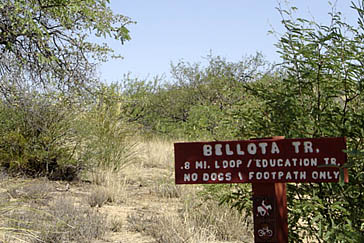Source: Joshua Bowling, The Republic/azcentral.com, October 18, 2017
Arizona Legislature
Arizona parks backers push for November ballot measure
[Source: Mike Sunnucks, Phoenix Business Journal] – Backers of a proposed state ballot measure to protect state parks from future budget raids say they are moving forward with their effort to get on the November ballot. The Arizona Natural Resources Protection Act also would offer schoolchildren free admission to state parks and would allocate a portion of automobile taxes to state parks in the budget. The money would go toward operations, repairs and improvements.The measure needs to collect 172,800 voter petition signatures by July 5 to get on the November ballot.
Backers of the plan were considering waiting until the 2014 election to make the push, but Larry Landry, a partner with lobbying firm Landry Creedon & Associates Inc., said they are opting “to move full steam ahead” with the signature-gathering effort and try to meet the deadline.
Landry said the measure polls well with voters. The Arizona Legislature has raided or swept $15 million from parks and conservation funds and budgets since 2009 and passed tax cuts as it dealt with overall budget shortfalls.
Parks measure advocates are reaching out to environmental, education, business and tourism groups touting the state parks’ contribution to the Arizona economy, especially through tourism. Major business and tourism groups contacted, including the Greater Phoenix Chamber of Commerce, Arizona Business and Education Coalition, National Federation of Independent Businessand Scottsdale Convention & Visitors Bureau, said they don’t have an official stance on the measure.
The Fight to Keep State Parks Open
[Source: Shain Bergan, Tucson Weekly]
These self-generated funds equal about $10 million, falling well short of the $18.4 million needed to operate the parks currently open to the public.

Things looked grim about a year ago, as well, for Arizona State Parks. After a $10 million Legislative sweep of the parks’ Heritage Fund, parks officials faced the probability that they would have to look at closing more than half of Arizona’s 28 state parks.Communities, towns and counties, though, stepped forward, footing at least part of the bill to keep 16 of those parks open through temporary 1 to 3-year lease agreements.
For nine of those parks, third parties contributed enough to keep state park staff employed at the locations. For the others, the government staff has been replaced by employees and volunteers of the contributing parties, Ziemann says.
Now, only three state parks—-Lyman Lake State Park, Oracle State Park and San Rafael State Natural Area—-are currently closed to the public without lease agreements in the works. Despite the difficulties raised by the governor’s proposed budget for the upcoming fiscal year, parks officials are still trying to figure out ways to keep those parks open, Ziemann says.
Those efforts include talking to contacts at the State Capitol and trying to attract local communities to the table to negotiate temporary leases, Ziemann says.
Although Ziemann remains optimistic that agreements can be made to keep all the parks open, he concedes that temporary leases do not solve the larger issue of lacking revenue in the Arizona State Parks system.
“Right now, the goal is to get all these parks open to the public,” he says. “But this is not a long-term solution.”
So what is a long-term solution?
“We’re still trying to figure that out.”
Viewpoint: Let us vote on plan to save state parks
[Source: Arizona Republic editorial board] — A ballot measure to save our state parks has stalled in the Legislature. The park system is on the verge of financial collapse. The system is so cash-strapped that iconic places are closing, from Tombstone Courthouse to Picacho Peak. How smart is that for a state that relies on tourism? It doesn’t have to happen.
HCR 2040 would let voters decide whether to create a steady source of funding by raising vehicle-registration fees by $9 a year. (An additional $3 would pay for rest areas and be used for other transportation purposes.) In return, Arizona-registered vehicles would get free entry to all state parks. And private enterprises would still have ample opportunity to develop and operate marinas, campgrounds and other services.
States like Montana and Washington have already adopted this common-sense system. The proposal passed out of the Natural Resources and Rural Affairs Committee. But it’s inexplicably stuck in Appropriations. If Chairman John Kavanagh won’t put it on the agenda, he should let it move along to a floor vote. Voters should get a chance to ensure the future of our parks.
Gov. Jan Brewer and lawmakers should avoid unnecessary damage in the short term. They’re considering a budget proposal that would create an immediate crisis, draining what little money remains for the parks to run on. This defies logic. State leaders talk a lot about making Arizona more competitive. Our parks are unique recreational and economic assets, especially for the rural communities. Let’s capitalize on those strengths.
